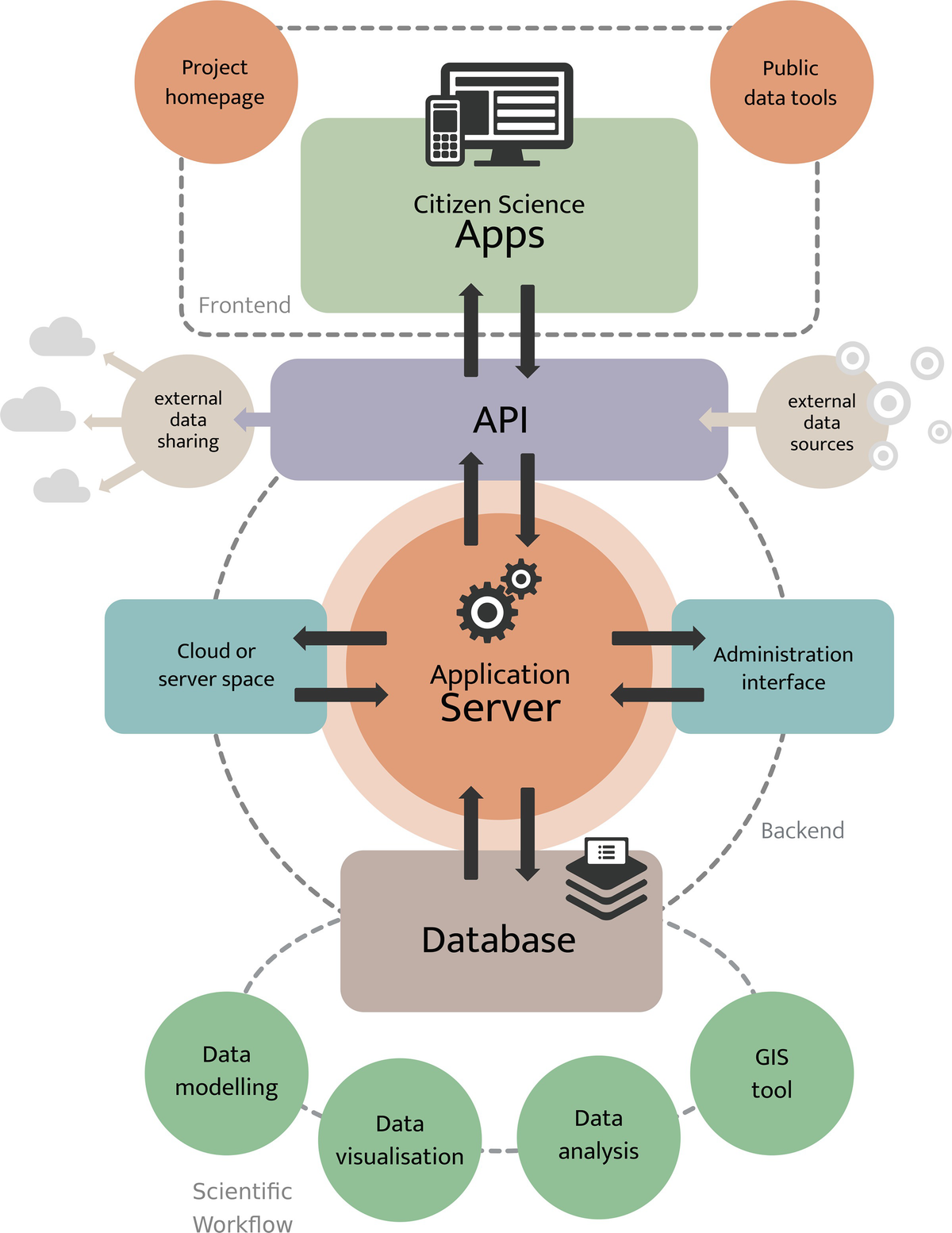Citizen Science Applications
Technology has fuelled the way for citizen science projects to expand locally, as well as nationally or even globally. The widespread use of smartphones has created new opportunities in the field of citizen science (Silvertown, 2009; Newman et al., 2012; Bonney et al., 2014; Wynn, 2017 in Lemmens et al., 2021). Mobile applications provide a new way to steer the data gathering process as part of the scientific method. Communication with and among participants is now possible at any time, as many people carry their smartphones with them almost constantly. These applications can host a citizen science project, which the project lead manages and operates on the back end. Users, or citizen scientists, can then download the application, and input their data in real time and on their own schedule. On the back end, these applications can often model data, help visualize data, store it safely, and more (depending on the design of the application).
Citizen Science in the Digital World of Apps (Lemmens et al., 2021)

Lemmens et al. (2021) discuss the value of technology for citizen science, and summarizes different types of applications to meet different project needs. Read their article here if you would like to learn more about citizen science in the digital age.
Real time monitoring of community based programs | Bester Mulauzi | TEDxLilongwe
Bester Malauzi speaks about a smartphone application called PanPhone. This application is being used in community-based childcare centres in Malawi, to help care-givers track real time data for the purpose of monitoring their development program in remote areas. Think about what you have learned about M&E so far, and how access to this application can benefit the community. What are some challenges a care-giver might experience using this application?
META Podcast: Two Exciting Ways to Use Mobile Data Collection in Refugee Programs
Here is another example of how citizen science applications can be used in the community. On this episode of the META podcast, we are introduced to two women who are using mobile data collection to support programs for refugees in the U.S. Hear from Rachel Factor of Refugee Services of Texas about Refugee Mobile, a project that gives clients smartphone technology and collects data through text message. Abigail Clarke-Sayer of the IRC also shares about a pilot program that put iPads in the hands of caseworkers to help them enter data on-the-go. You might want to think about the feasibility of using a data collection approach with technology, including what the cost might be for yourself, an organization, or even the citizen scientist.
“No one will protect what they don’t care about; and no one will care about what they have never experienced”.
– David Attenborough

